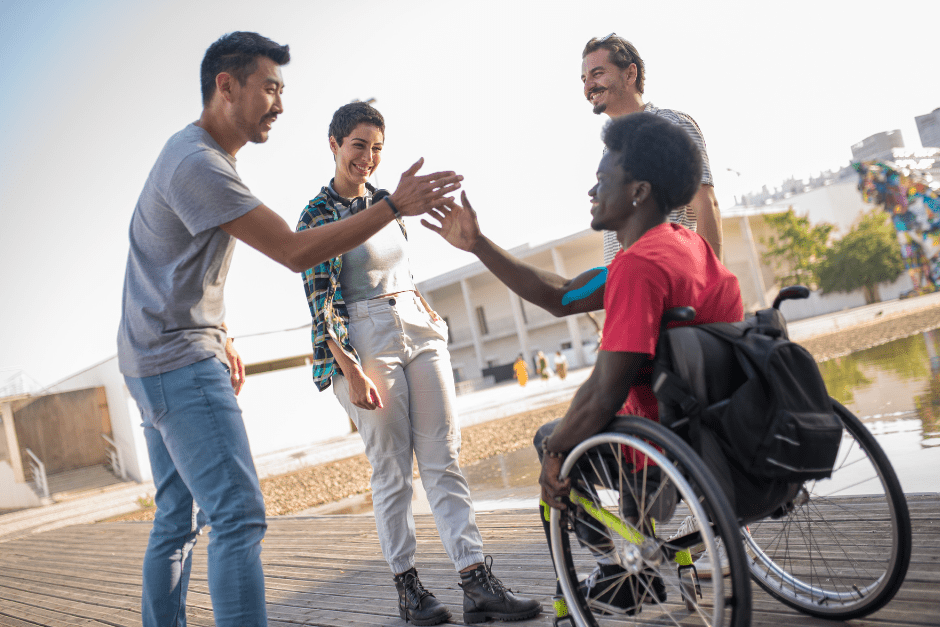
In short: yes! In a recently published article, several CSDE researchers took a participatory approach to studying this topic with seven young adults with self-identified disabilities. Using a series of audio diaries, group interviews, and individual interviews, researchers worked with the young adults to explore the idea that opportunities for community engagement – including participation in inclusive programs, such as the Youth Ambassador Program through Special Olympics – had impacted the development of their sense of self. By engaging in leadership activities, connecting with a community of young adults with and without disabilities, and participating in service activities, the young adults noted that they were more prepared to navigate the tricky process of identity development. They described the process of learning to accept their disability, incorporating it into their overall identity, but ultimately developing a holistic sense of self that encompassed all parts of themselves, transcending the social pressure to define themselves only by ability.
So what do we do with these findings? In the broadest sense, we need to be advocating for and offering more opportunities for meaningful and inclusive community engagement, for both youth with and without disabilities. Creating opportunities for social connections, for students to use and develop skills, and nurture passions can be incredibly influential for adolescents and young adults. This is particularly true for those about to leave high school. These types of opportunities can facilitate social inclusion for all, which is too often denied for those with disabilities. So get out there and start getting engaged!
By Staci Ballard, Graduate Assistant at the Center for Social Development and Education
